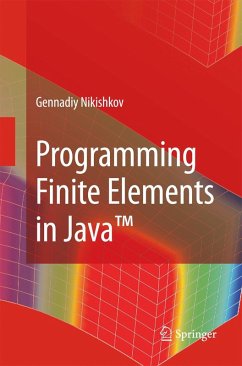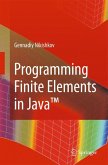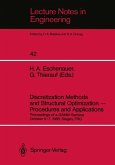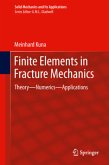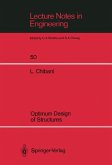Programming Finite Elements in Java(TM) teaches the reader how to programme the algorithms of the finite element method (FEM) in Java(TM). The compact, simple code helps the student to read the algorithms, to understand them and thus to be able to refine them. All of the main aspects of finite element techniques are considered: finite element solution; generation of finite element meshes; and visualization of finite element models and results with Java 3D(TM).
The step-by-step presentation includes algorithm programming and code explanation at each point. Problems and exercises are provided for each chapter, with Java(TM) source code and problem data sets available from http://extras.springer.com/2010/978-1-84882-971-8.
The step-by-step presentation includes algorithm programming and code explanation at each point. Problems and exercises are provided for each chapter, with Java(TM) source code and problem data sets available from http://extras.springer.com/2010/978-1-84882-971-8.
From the reviews:
"Throughout the book, the author provides, in an object-oriented paradigm, clear and compact Java code snippets extracted from his own software application. ... The intended audience includes advanced undergraduate students in finite element analysis courses and graduate students in introductory FEM courses. Scientists and engineers who are familiar with FEM techniques can benefit from the book's discussion of object-oriented implementation. ... this book would also be highly valuable for computer scientists who want to learn about computational science and engineering and the FEM." (Alin Anton, ACM Computing Reviews, January, 2013)
"Throughout the book, the author provides, in an object-oriented paradigm, clear and compact Java code snippets extracted from his own software application. ... The intended audience includes advanced undergraduate students in finite element analysis courses and graduate students in introductory FEM courses. Scientists and engineers who are familiar with FEM techniques can benefit from the book's discussion of object-oriented implementation. ... this book would also be highly valuable for computer scientists who want to learn about computational science and engineering and the FEM." (Alin Anton, ACM Computing Reviews, January, 2013)

